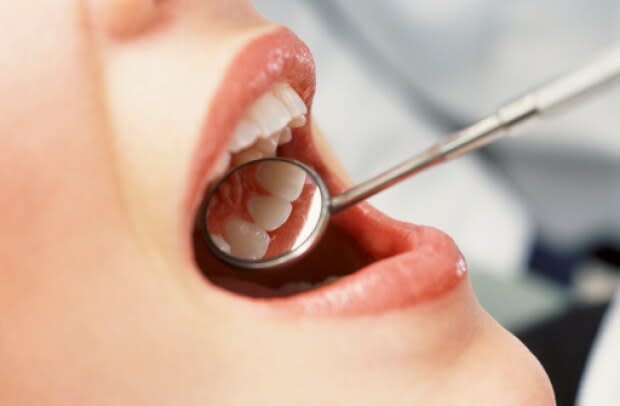Province's dental hygienist shortage exacerbated by extra year of required training
A chronic shortage of dental hygienists in the province became worse this year after changes were made to the diploma program for students.
Instead of two years to get a diploma, the Saskatchewan Dental Hygienists Association now requires students to have three years of training.
That meant there was no graduating class of 26 students in the province this past spring.
One reason for the change is the expanding role of dental hygienists, Shelby Hamm, the association's deputy registrar, told Saskatoon Morning's Jennifer Quesnel.

Not only do hygienists take care of a patients' oral issues, they look out for their overall health, Hamm said.
That means dental hygienists need a solid foundation in classes like physiology, chemistry, psychology, sociology and statistics.
So a year of arts and science classes has been added to the program at Saskatchewan Polytechnic in Regina.
Overall health care
Hamm said hygienists can help identify and prevent ailments such as heart disease, diabetes, Alzheimer's and strokes.
"For example, periodontal disease is a risk factor for heart disease," Hamm said. "If your gums are inflamed, the bacteria in your mouth can get into your bloodstream and lodge in your heart vessels."
She said gum disease also plays a role in diabetes, with research showing that untreated gum disease makes it harder for people with diabetes to control their blood sugar.
"Eliminating gum disease can improve blood sugar, reducing the risk for serious complications with diabetes," she said.
"It's also associated with rheumatoid arthritis and aspiration pneumonia, which is a big concern for long-term care facilities."

Underserved areas
Hamm said the shortage has resulted in segments of the population being underserved.
"That would be those living in remote areas that maybe don't have access to private practice," she said. "Also in long-term care facilities. There are lots of people that aren't able to access the dental office and these people are at high risk for lots of oral and systemic problems that dental hygienists can help prevent and treat."
Filling the gap
Hamm would like to see Saskatchewan Polytechnic's program expanded, but that means more funding is needed.
Hygienists are also at high risk for ailments like carpal tunnel syndrome and other repetitive strain disorders.
Hamm said hygienists need to to look after themselves by making sure they have the proper ergonomics in the workplace and possibly scaling back their hours or days to take care of their own health.


